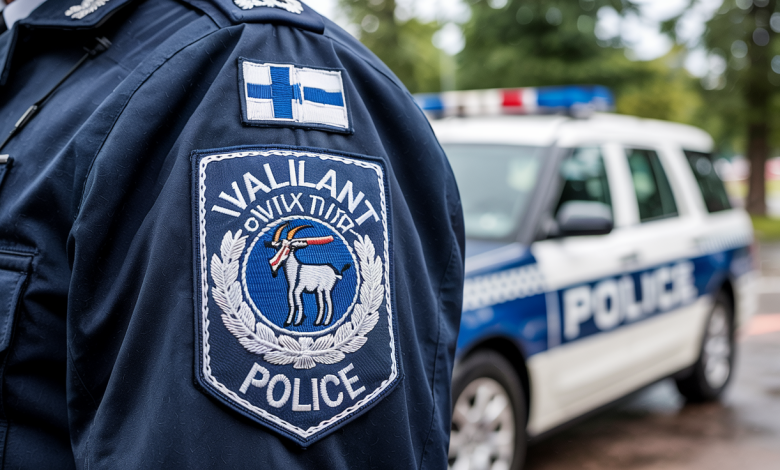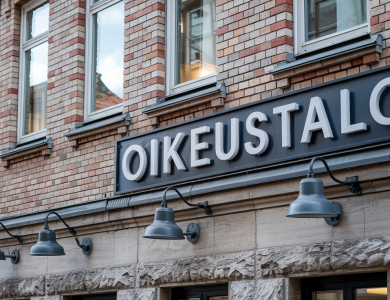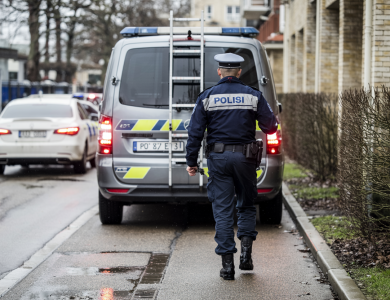
There have been reports of a serious incident, which may be a suspected homicide, in the city of Rovaniemi in Finnish Lapland. Although preliminary information may have come through channels like the Finnish national broadcaster, Yle, which regularly covers major events around the nation, precise, confirmed details about this specific event are still limited based on currently available public information.
Since such reports are serious in nature, this article has tried to give necessary background information instead of making guesses about unsubstantiated facts. The intent here is to present the typical protocols used by authorities in Rovaniemi, specifically the Lapland Police Department, while dealing with and investigating allegations of major crimes like homicide. These processes are important to know to accurately interpret developments. Also, in this procedure, there is stress on rendering educative, professional content that is based on fact-based procedures and responsible report standards that apply well to the digital environment aspiring for credibility as well as being under guidelines such as AdSense. In instances involving possible fatality, seeking references from authority and being cognizant of the investigative format stands at paramount consideration.
The Lapland Police Department: Initiating the Action
The main police force tasked with Rovaniemi and the vast surrounding region of Lapland is the Lapland Police Department. Its regional headquarters are wisely placed in the administrative capital Rovaniemi. This force has the mandate for upholding public order, safety, and criminal investigations in its area.
Where news of major offenses, including suspected murder, surfaces, the Lapland Police Department is in charge of the formal response. Among their responsibilities is securing possible crime scenes, acquiring initial information, and initiating an official investigation procedure. The department is designed to manage intricate cases and liaises with other requisite emergency and forensic services.
The Lapland Police Department also has formal channels of interaction with the public on matters of non-emergency nature. These include a specialized helpline, a tip line for the purpose of giving information pertaining to investigations, and several online services, reflecting a contemporary style of police work. Official email addresses are provided for inquiries pertaining to current investigations, giving tips, or asking for official records. This system of structured communication emphasizes the formal process by which information is organized and distributed, emphasizing the use of official channels for reliable updates or offering assistance.
Table 1: Lapland Police Department Key Public Contact Information (Non-Emergency)
| Contact Type | Details | Source |
|---|---|---|
| General Helpline & Appt. | +358 295 419800 | |
| Tip Line (Phone) | +358 295 466259 | |
| Tip Line (Email) | [email protected] | |
| Online Services | Link available via official police website | |
| Registry (Official Docs) | [email protected] | |
| Ongoing Investigations | [email protected] |
Note: In emergencies, always dial 112.
Investigating Serious Crimes in Finland: A General Overview
In Finland, investigations of serious crimes like suspected homicides go through a systematic and legally established process, the pre-trial investigation (esitutkinta). The process immediately starts after reporting the incident. The first response is usually police officers securing the location to maintain evidence and contacting emergency medical services if necessary. The nationwide emergency number 112 is the typical contact point for emergencies.
Once the scene is secured, the formal pre-trial investigation begins under the guidance of an allocated investigator. Major activities are:
- Evidence Collection: Careful collection of physical evidence from the scene, possibly involving forensic experts. Examination of this evidence is important to reconstruct events.
- Witness Interviews: Police formally interview people who could be witnesses to the incident or have information pertinent to the case. Official appeals for eyewitnesses can also be made through public means, like press releases.
- Suspect Identification and Interrogation: Attempts are made at identifying possible suspects. If people are taken into custody, they are formally interrogated. Suspects enjoy rights under the law, such as the right to an attorney.
- Collaboration: For particularly complex or serious cases, the local police branches such as the Lapland Police Department can team up with the national ones, for instance, the National Bureau of Investigation (KRP) that has assets for the specialization of investigative requirements. This is evident, for instance, in the reopening of a vintage murder case against an ex-police officer in Helsinki.
Throughout the investigation, specific laws of procedure may be put into action.
Suspects may be arrested and held in detention. For extended detention after an initial short period, police have to bring their case before a District Court and apply for formal pre-trial detention. This judicial control guarantees that detention is justified by law. It should also be mentioned that the character of the charges may change as the investigation unfolds and additional evidence emerges. For example, a first-degree charge of manslaughter could be upgraded to murder if premeditation or specific cruelty are evident, as in a case investigated by the Western Uusimaa Police Department. Knowing the general setting of homicides in Finland gives additional context. National crime statistics show that homicides are fairly rare in comparison with attempted homicides.
A large proportion is committed by male offenders, frequently associated with heavy drinking, and often between known individuals, like family or acquaintances. Killings by strangers or with firearms in public places are relatively infrequent. Although each case is individual, this statistical context implies that investigators tend to focus on investigating the victim’s relationships, recent contacts, and possible conflicts as main lines of investigation, following patterns in previous cases where victim-suspect relationships were at the forefront. This systematic approach, based on common patterns and legal processes, typifies serious crime investigations throughout Finland. The Significance of Verified Information and Responsible Reporting In the course of active probes into serious offenses, it is common for the Finnish police authorities to tread carefully in terms of the information made available to the public.
It is a conscious effort, as observed in police statements receiving sensitive cases, where they specifically restrain themselves from giving remarks on the specifics while investigations are in progress.
There are sound reasons for taking this approach: early disclosure may jeopardize evidence, forewarn other would-be involved parties, taint witness testimony, or infringe upon victims’ and suspects’ privacy rights.
Maintaining the integrity of the investigation is key to achieving a fair outcome. Thus, credible and confirmed information generally comes out by way of formal channels. Such typically appear as press releases published by the investigative police force or official press conferences presented by the principal investigators. These formal pronouncements offer proven facts cleared for public dissemination. Reputable news media, national broadcasters such as Yle as well as sound local news reporting, have the important role to spread this authenticated information to citizens. Finns are active readers of news, frequently using web sources, which makes the mission of responsible reporting especially significant. These media rely on official releases from the police and authenticated sources for their reports on crime. In the public interest and for accuracy, it is important that readers and publishers alike draw on these official statements and reputable media reports.
Participating in or circulating speculation, rumor, or unsubstantiated information, particularly on social media, can be damaging.
It can cause unnecessary public alarm, possibly divert investigative resources if false leads are created, and be highly unfair to those concerned.
Following fact-based reporting and shunning sensationalism is the essence of responsible journalism and content standards promoted by such platforms as AdSense that emphasize reliable and safe content environments.
Rovaniemi: Context Beyond the Incident Though attention is now turned to the investigation, it is pertinent to recognize Rovaniemi’s location in Finland. Being the internationally accepted capital of Lapland, Rovaniemi is an important administrative, commercial, and logistical center of the northern area. It accommodates the headquarters of the Lapland Police Department, highlighting the status of being a center of law enforcement activity. In addition, Rovaniemi also serves as an important judicial hub. Although certain court hearings pertaining to a current investigation would take place at the proper level (most likely District Court first), the city also hosts higher courts, like the Rovaniemi Court of Appeal, which deals with appeals from lower courts within the area, as in the past Oulu child murders case where it heard the sentence. Apart from its official activities, Rovaniemi is a living society and an entry to the Arctic. News of major incidents, although rare as part of general safety, automatically affect the society. Having insight into the dual role of the city as both an administrative capital and a residential society gives broader background to things that happen there.
Conclusion: Waiting for Official Reports
News of a serious incident, namely a suspected homicide, in Rovaniemi has elicited an official reaction from the Lapland Police Department, which is now conducting an investigation. Although the initial reports emphasize the seriousness of the situation, concrete, confirmed details regarding the event itself are presently scarce in the public sphere.
The inquiry will follow standard Finnish legal and police protocols, including evidence gathering, witness questioning, and possibly legal measures like arrests and detention hearings, under the control of the judicial system. Knowledge of these normal processes gives a context for understanding future events.


